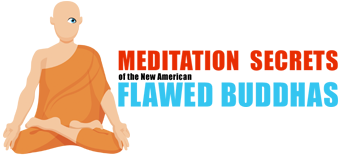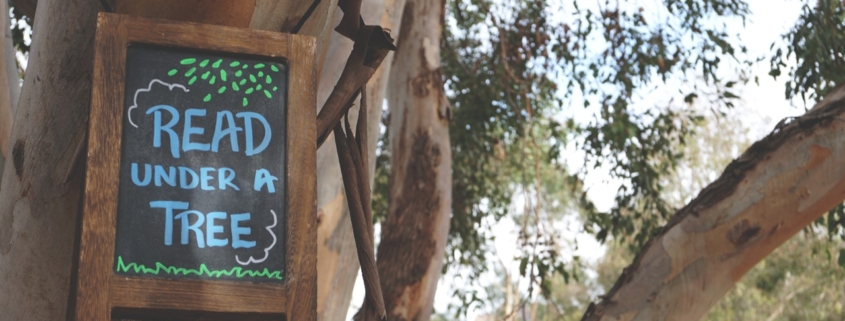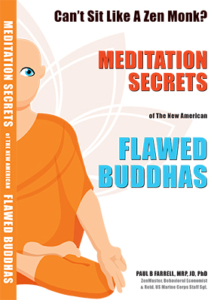Last Updated on March 19, 2021 by Paul Farrell, MRP, JD, PhD

Inspirational reading!! … Yes, first choice! Wherever, whenever, whatever you’re reading, you are meditating!
“I never wanted to meditate. I don’t know why. I guess the main reason is if I sit down to meditate, I’m not getting my reading done.
That’s been my main career—reading.
I remember Alan Watts once asked me, ‘Joe, how do you meditate?’ I said, ‘I meditate by underlining sentences.’ I prefer the gradual path—the way of study.
My feeling is that mythic forms reveal themselves gradually in the course of your life.”
– Joseph Campbell, The Hero’s Journey
Years ago Joseph Campbell taught me this very simple message – reading is meditation. He meant the whole process of reading, studying, research, underlining, taking notes – reading and meditation are the same thing.
At another time Campbell made the same point when his friend Alan Watts asked him how he meditated. Watts was one of the great popularizers of Zen in America in the fifties and sixties, and a regular practitioner of za-zen, the Zen technique of sitting meditation.
Campbell saw meditation differently. Sitting meditation was a distraction from what he knew worked best for him. So he made his point with a light-hearted response, telling Watts that he meditated while “underlining,” while doing his reading and his research.
Reading is the Most Natural Way to Meditate … And We All Do It!
Reading inspirational literature, sacred texts, motivational and all kinds of other books is certainly the most commonly accepted forms of meditation in the world. And today we would probably add listening to taped readings, although most so-called meditation tapes are boring. In particular, avoid any that promise you can “meditate deeper than a Zen monk at the touch of a button.” Books have been proven meditation aids for thousands of years.
Books provide a natural way to meditate. The conventional wisdom in the press has most Americans believing that meditation can only be performed sitting in a lotus position with your eyes closed. And yet, we now know that any activity can be a meditation simply by applying the basic principles of meditation, staying in the moment, focusing on whatever you’re doing – including reading. It’s that simple. Reading is something we all do so naturally that we don’t even think of it as meditation. And yet, it’s the perfect mediation.
Reading has an incredibly long history as meditation, going back to the contemplative mystics of ancient times – Taoists reading the Tao Te Ching, Hebrews and The Torah, early Christians and The Bible, Zen masters and The Ten Bulls scriptures. The works of Aquinas, Meister Eckhart, and Goethe. And more recently, works such as Trappist monk Thomas Merton’s The Way of Chuang Tzu, and Zen and the Birds of Appetite, and his friend, the Vietnamese Buddhist monk, Thich Nhat Hanh’s Living Buddha, Living Christ.
The “People’s Choice Award” History’s Most Popular Meditation
Unquestionably, reading has been a favorite form of meditation for the great mystics of all times, all cultures and all spiritual traditions – reading is their way to enter and explore the eternal truths of the spiritual world as well as the tough questions about everyday human existence. In recent times, reading meditation has expanded far beyond monastic walls, offering unbelievable opportunities for everyone and anyone today!
Everybody seems to be reading. Just walk into any Borders or Barnes & Noble. Everywhere from the children’s section to the Starbucks lounge. The chairs are full, many of these people are reading and meditating. No mantras, no breath counting, no body scanning, and they don’t call it meditation. It just is. They just do it to relax and reduce stress, to learn, to contemplate. Reading gets the ‘People’s Choice Award’ for the most popular meditation in history!
You Will Be Guided to the Right Books for Meditation
Today anything you read can be an opportunity to meditate – it is your decision! Anything? Yes, whatever that draws you to it. And you do not need to know why in advance. Trust you are guided. The obvious ones are in the spiritual, religious, inspirational, motivational and self-help shelves.
The List Goes On and On
In addition, there’s Zen and the Art of Motorcycle Maintenance. Others like Zen & the Art of Knitting. Zen and the Art of Poker. The Tao of the Jump Shot. Golf for Enlightenment. Chi Running. The Tao of Surfing. Care of the Soul. A Course on Miracles. Zenvesting. Airplane Yoga. The Artist’s Way. Money and the Meaning of Life. The Road Less Traveled. The Power of Now. The list goes on and on. These are many of the obvious titles for reading meditation. They gently guide your mind along a natural path and into a peaceful world of contemplative meditation.
But who decides which books are the “appropriate” kind of reading for meditation? Or more particularly, who decides which ones are the “right” kind of books that will work for your unique style of meditating? Should you rely on the word of some external authority to decide for you? Can you trust a religious cleric, spiritual guru, university teacher, motivational coach or a hot-shot New York Times book reviewer to tell you which books are right or wrong for your meditations?
Kant, King, Cosmos, Crosswords and Comics!
And how about novels? Maybe classics like War and Peace, The Great Gatsby, or Graham Green’s The Power & The Glory, which gave me a new appreciation of Christianity. The DaVinci Code forced us to explore religious history. Grisham’s The Jury makes you focus on the morality of our justice system. Harry Potter got huge numbers of young people reading. How about a Stephen King novel? Spy thrillers? Mysteries? Pulp fiction? Romance novels?
How about a book on Impressionist Art, Civil War military strategies, archeology, or 16th century mathematics? Browsing through home decoration books is one of my wife’s favorite meditations. What about Carl Sagan’s Cosmos, D-K’s illustrated Travel Guide to Italy, or a Betty Crocker cookbook? Great food for your next meditation. Comics? They were my son’s passion as a kid, they got him thinking about his career in the arts.
Berlitz, Berra, Biotech and Businessweek!
But don’t stop there. What about Berlitz language manuals, the World Almanac, books on repairing antique dolls, ballroom dancing, Yogi Berra’s humor, medicine, nuclear physics, biology, legal ethics, even the boring tax code? Magazines? Why not? National Geographic, the Smithsonian and BusinessWeek? Of course you can meditate with them!
Yes, and even the telephone book can be a meditation aid. Years ago in a spiritual workshop the leader had a group of us pose a tough question. Then we randomly opened a telephone book, close our eyes and randomly pointed to a word on that page. Next we had to trust that randomly selected word contained key to the answer to the question, a message from the universal intelligence. Actually this presumably random process is quite similar to time-honored divination tools such as the Tarot, Runes and the I Ching.
Yes, You DO Know What’s Best for You
The truth is, nobody can tell you what kinds of books are right for your reading meditation. No one. You and you alone know what works for you. And nobody else can ever tell you.
Trust yourself.
You will be naturally led to the kind of reading that is right for you. All you have to do is focus on what you are reading, set aside the distractions of the world and read – you are meditating. In Starbucks or Borders, in your local library, a park bench during lunch, curled up in bed late at night, on the commuter train to work, or right there sitting in your office – stop and read and meditate.
Meditation is Not Out There, in Some Book You ARE the Meditation
By now you know that neither the kind of book nor the specific book you’re reading is important – you are. This is the key point here, so let me repeat it again for emphasis: The particular book you use for your meditation has nothing to do with whether you are meditating or not – every book is an opportunity to meditate.
You have the absolute power to transform every book into a meditation. You alone can meditate on any book. You are the meditation, not the book.
When you understand that the meditation is within you – that you are tapping into a secret power that is both within you and at the same time universal – then you and the meditation are one and you know that whatever you’re reading is just another tool to help you meditate. As Science of Mind founder Rev. Ernest Holmes tells us in This Thing Called You:
“The answer is not in any book but in yourself.”
So trust yourself, you are being guided.
About the Author
Dr. Farrell is a Behavioral Economist. His books include The Millionaire Code; The Millionaire Meditation: Stress Management for Wall Street, Corporate America & Entrepreneurs; The Zen Millionaire; The Winning Portfolio; Expert Investing on The Net; Mutual Funds on The Net; and The Lazy Person’s Guide to Investing.
He also published 1,643 columns on DowJones-MarketWatch and for years was their #1 traffic-generating columnist. Before the Internet, he edited & published FNX: Future News Index, a financial newsletter for stock market traders. Earlier he was a Wall Street investment banker with Morgan Stanley, Executive Vice President of the Financial News Network; and Associate Editor of the Los Angeles Herald Examiner.
He has a Doctorate in Psychology, Juris Doctor, Masters in Regional Planning and Bachelor of Architecture. He worked on the Esalen organic farm and served in the U.S. Marine Corps as Staff Sergeant in aviation computer technology.








